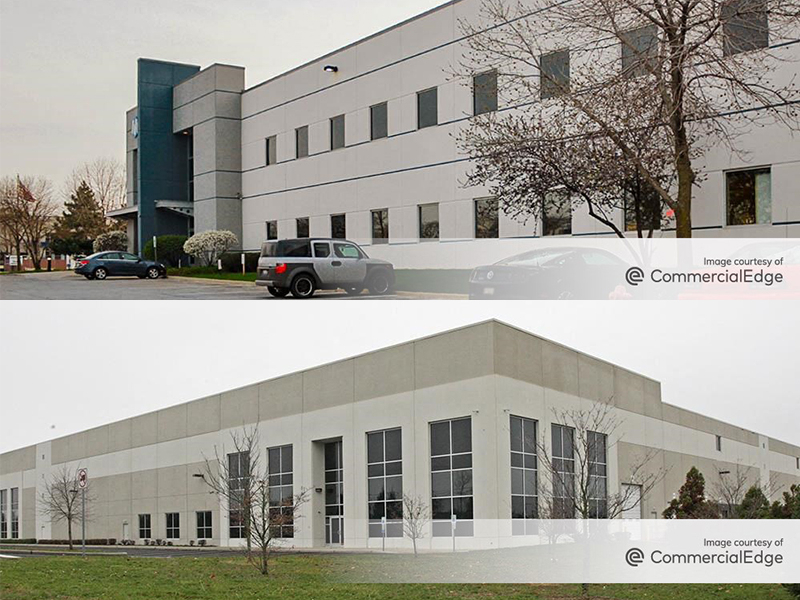CRE Investment and the Blockchain: A Transactional Perspective
Vasiliki Yiannoulis of Withers' real estate law practice discusses this new technology's potentially disruptive impact on the industry over the next few years.
By Vasiliki Yiannoulis
In much the same way that ride-sharing technology (i.e., platforms like Uber) has been a disrupter in the ride-seeking market, blockchain technology has the potential to significantly disrupt the U.S. real estate market.
In order to understand how, it helps to understand the technology. Although blockchain is commonly associated with Bitcoin, the technology has a variety of other potential applications, including in real estate transactions. So, what is a blockchain? It is essentially a digital database of transactions and information containing a collection of records linked and secured via cryptography. Each record is referred to as a “block” and contains information including a timestamp and a history of preceding blocks. This feature makes it difficult for anyone to tamper with the record after the fact and, because the database is decentralized and records are stored over multiple database systems rather than in one centralized system, it is nearly hack-proof.
Transactional impact
Presently, in a typical commercial purchase transaction in most U.S. jurisdictions, the buyer and seller enter into a purchase agreement, which often designates the buyer’s title insurance company as escrow agent. After the parties sign a contract and buyer delivers a deposit, the buyer runs a title report and conducts other diligence on the property. Assuming title and diligence are satisfactory, closing typically occurs up to several months after the contract is signed. In many instances, financing is negotiated simultaneously with the purchase.
In the run up to closing, the buyer and seller will send their original signatures in escrow to the escrow agent, and the buyer will additionally wire the balance of the purchase price (net of any deposit) to the escrow agent. When all parties are satisfied and ready to close, signature pages and funds are released from escrow, the escrow agent distributes the fully executed agreements, files the deed, mortgage, if any, tax forms and other filings, and distributes funds according to a closing statement.
Blockchain technology, once mature, has the potential to drastically change the way buyers, sellers, investors, and lenders conduct such transactions. Buyers will initially use a blockchain-enabled multiple listing service to identify properties. When a buyer identifies a desired property and the seller agrees to sell, a smart contract (i.e., a contract that self-executes when certain conditions are met and in which the terms of agreement between the parties are written in code) will be created and, if lending is involved, a smart loan contract between the buyer and mortgage lender will also be created.
The buyer and its lender will also conduct diligence through the blockchain-based digital identity of the property. At closing, payments will go from an escrow blockchain account to the seller’s blockchain account, and the clerk of the county where the property is located will initiate a title transfer to the buyer through the blockchain, creating a new permanent block. If lending is involved, the smart loan contract will allow for regular automated loan payments to be transferred through the blockchain from the buyer to the lender, and the mortgage will also be recorded on the blockchain as a new block.
Industry benefits
The prospective benefits of blockchain on the real estate industry are many and varied. Blockchain has the potential to increase transparency, eliminate the need to reconcile documents, enhance data security, drastically reduce title fraud, and make it easier to pay rents, deposits, loan payments and other fees via automation. In particular, the technology promises to reduce “friction” in real estate transactions, which are currently often costly, time-consuming and inefficient (in part due to the fact that there are so many stakeholders in a typical transaction), by mitigating factors that often have the effect of slowing transactions.
Title companies in particular can throw a wrench in transactions because they will not issue insurance policies until the various title risks have been eliminated or mitigated to their satisfaction. In the long-run, title insurance may become less common as more data migrates to the blockchain, and blockchain-based registries could eventually allow peer-to-peer asset transfers, drastically reducing transaction times. As a result, blockchain technology has the potential to significantly reduce transaction costs—in fact, a report by Goldman Sachs has estimated that blockchain technologies could lead to an annual savings of $2 billion to 4 billion in the U.S. title insurance market alone.
Market reservations
Notwithstanding blockchain’s potential as a disruptor in the real estate industry, the technology will likely take a number of years to fully implement—in other words, title insurance is not going away any time soon. In the first instance, a blockchain is only as good as the data that is uploaded into it, so there is a potential issue with ensuring that such data is accurate. Additionally, there is a question as to whether smart contracts satisfy the statute of frauds (a U.S. legal doctrine which requires certain contracts, including real estate contracts, to be in writing). A related question is whether land registries will accept e-signatures for land records.
Moreover, it will likely take time for smart contracts to become sophisticated enough to be applied to bespoke commercial transactions, which probably means that the technology will initially be applied to transactions which lend themselves to simple form contracts (for example, residential purchases). Beyond all this, there is the decentralized, local nature of the U.S. real property system—unlike many other countries, our land registries are run at the county level, and it will therefore take time for the various land registries to accept blockchain technology, and to migrate all records to a blockchain registry.
However, despite the various potential issues with implementation, it would be imprudent to ignore blockchain in real estate. A number of countries such as Dubai, Brazil, Sweden, Canada and the Netherlands are already testing and/or using blockchain for real estate transactions. Ah, you say, but what about the U.S.? To answer that question, blockchain has already arrived—the first blockchain deed was recorded in Burlington, Vermont in early 2018.
Vasiliki Yiannoulis is a partner on the real estate team of international law firm Withers. Her practice primarily focuses on commercial real estate matters, including assisting private and institutional clients with a variety of real estate transactions such as property acquisitions and dispositions, loan transactions and title matters.








You must be logged in to post a comment.